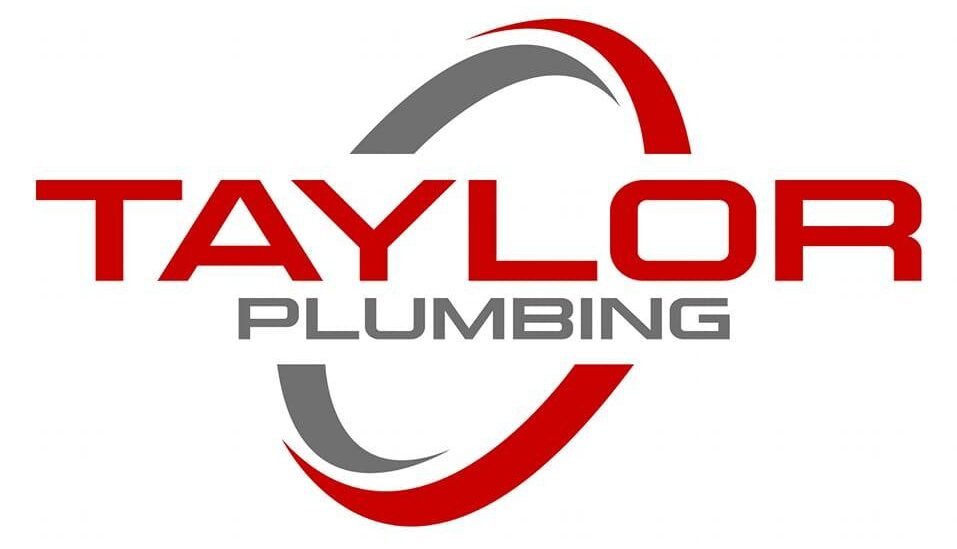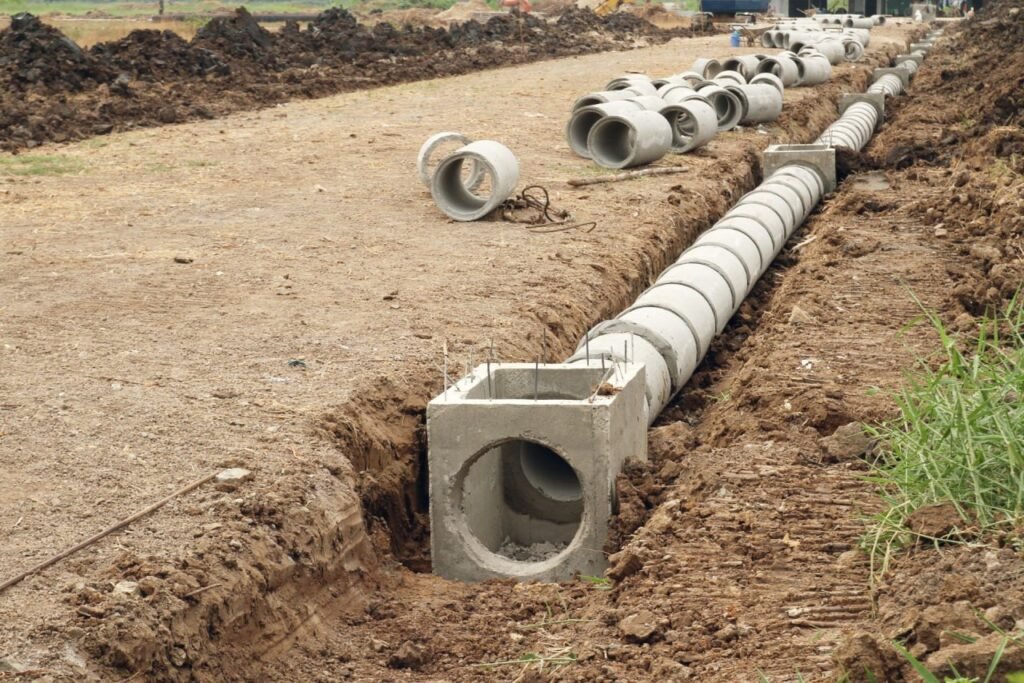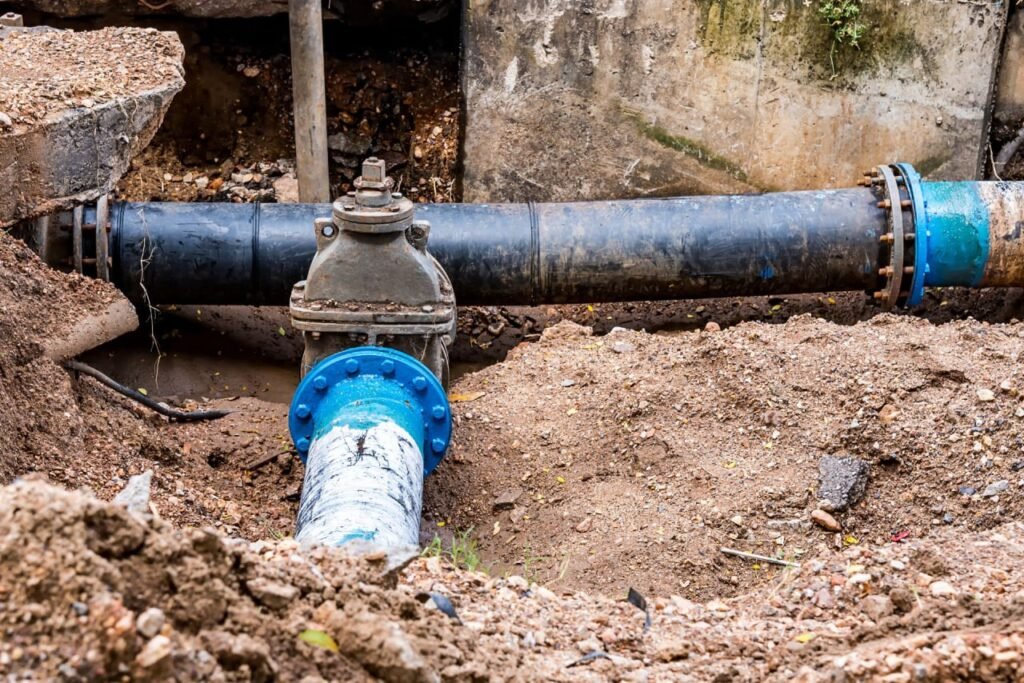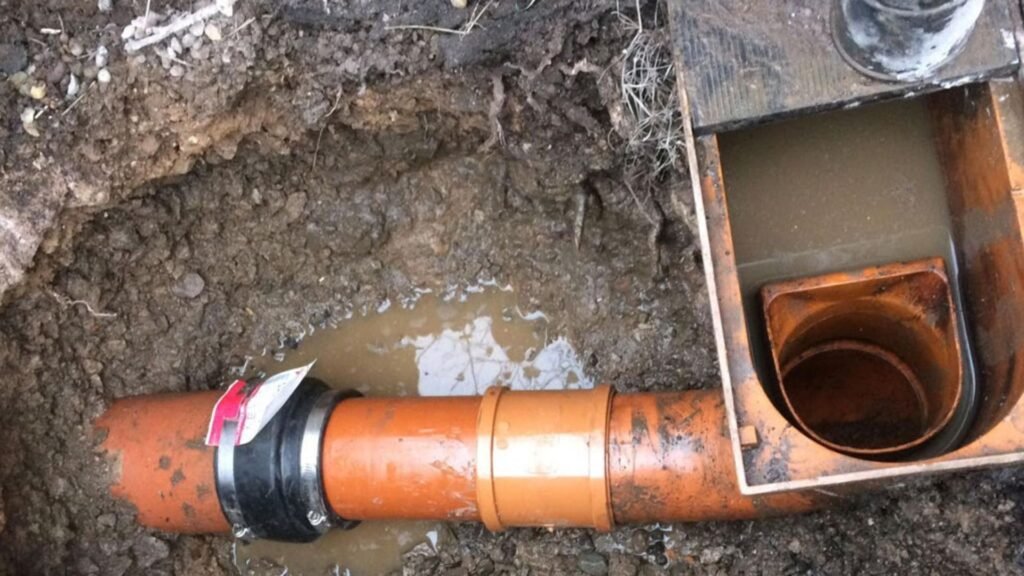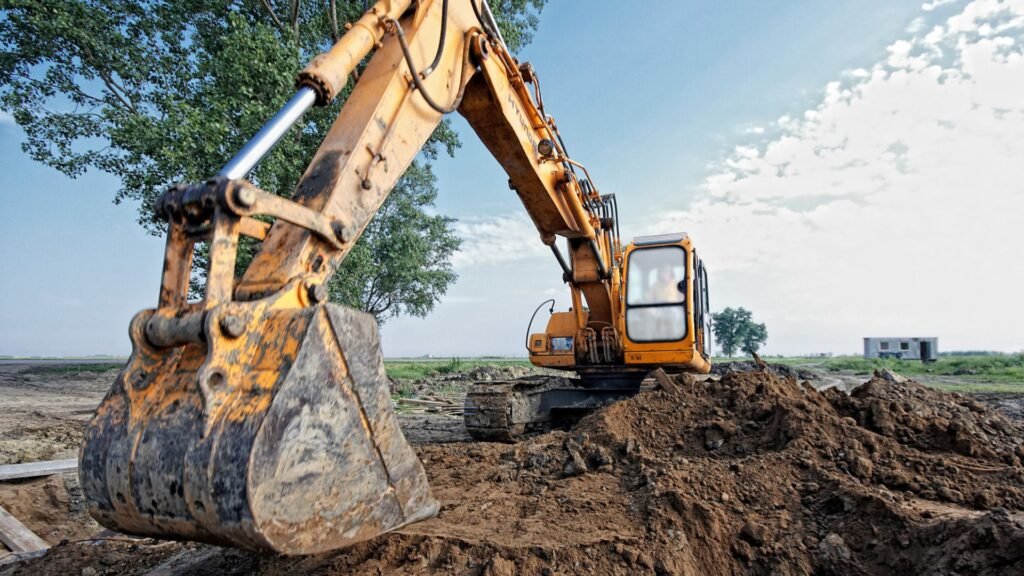Welcome to our comprehensive guide on the hourly rates for mini excavators and operators in New Zealand. With the increasing demand for construction and landscaping projects, understanding the costs associated with hiring this essential equipment and skilled operators is crucial. This article aims to shed light on the various factors influencing these rates, including location, job complexity, equipment quality, and operator experience. By delving into these aspects, we hope to provide you with a clear understanding of what to expect when budgeting for your next project, ensuring you make informed decisions that best suit your needs and financial considerations.
On average, the hourly rate for hiring a mini excavator and operator in New Zealand ranges between $90 and $150. This rate can vary based on factors such as location, the complexity of the job, equipment condition, and the operator’s experience. For more detailed information and tips on hiring the right equipment and operator, read our comprehensive guide.
- Understanding Mini Excavators
- Why Hire An Operator With The Mini Excavator?
- Factors Affecting Hourly Rates
- Average Hourly Rates In NZ
- Additional Costs To Consider
- Tips For Hiring The Right Mini Excavator And Operator
- Benefits Of Hiring Locally
- How To Save Money
- FAQs: About The Hourly Rate For Mini Excavator And Operator In NZ
- Conclusion
Understanding Mini Excavators
What is a Mini Excavator?
A mini excavator, often referred to as a compact excavator, is a smaller version of the standard excavator. Typically weighing between one to ten metric tons, these machines are equipped with a boom, dipper (or stick), and bucket. Mini excavators are designed to perform various tasks that larger machines might find challenging due to their size. They are powered by a hydraulic system, providing smooth and efficient operation. The compact nature of mini excavators allows them to maneuver easily in tight spaces, making them a preferred choice for tasks in confined areas.
Common Uses: Landscaping, Small-Scale Construction, Trenching, Digging, etc.
Mini excavators are incredibly versatile and can be used for a variety of tasks:
- Landscaping: Due to their small size, mini excavators are perfect for landscaping projects. They can navigate through narrow pathways and garden spaces, allowing for precise digging and planting. Whether it’s creating a pond, digging holes for trees, or leveling ground, mini excavators make the job easier and more efficient.
- Small-Scale Construction: On smaller construction sites, where space is a premium, mini excavators shine. They are ideal for tasks such as digging foundations, removing debris, and backfilling. Their ability to operate in confined areas makes them indispensable for urban construction projects and home renovations.
- Trenching: Mini excavators are excellent for trenching tasks. Whether laying pipes, cables, or drainage systems, their precise digging capabilities ensure that trenches are dug to the correct depth and width. Their agility also allows them to work around existing structures without causing damage.
- Digging: For general digging tasks, mini excavators are highly efficient. They can quickly and accurately dig holes for fence posts, signs, and other installations. Their hydraulic systems provide the power needed to dig through various soil types with ease.
Benefits: Versatility, Compact Size, Efficiency in Small Spaces
Mini excavators offer several benefits that make them a popular choice for various projects:
- Versatility: One of the standout features of mini excavators is their versatility. They can be equipped with a range of attachments such as augers, hammers, and grapples, allowing them to perform multiple functions. This adaptability makes them suitable for a wide array of tasks, from digging and trenching to demolition and material handling.
- Compact Size: The compact size of mini excavators is a significant advantage. Their smaller footprint allows them to access areas that larger machines cannot reach. This makes them ideal for projects in urban environments, residential areas, and other confined spaces. Despite their smaller size, they do not compromise on power and performance.
- Efficiency in Small Spaces: Mini excavators are designed to be highly efficient in small spaces. Their maneuverability and precise control enable operators to work close to structures, fences, and other obstacles without causing damage. This efficiency translates to faster completion times and reduced labor costs, making mini excavators a cost-effective solution for many projects.
In conclusion, mini excavators are a versatile, compact, and efficient choice for a variety of tasks. Whether you’re working on landscaping, small-scale construction, trenching, or general digging, these machines offer the power and precision needed to get the job done effectively. Their adaptability and ability to operate in confined spaces make them an invaluable asset on any job site.

Why Hire An Operator With The Mini Excavator?
When undertaking any construction or landscaping project that requires a mini excavator, it might seem tempting to cut costs by operating the machinery yourself. However, hiring a professional operator offers significant advantages that can save time, and money, and even ensure safety. Here’s a deeper look into why it’s beneficial to hire an operator with your mini excavator.
Skill and Expertise
One of the primary reasons to hire a trained operator is their skill and expertise. Operating a mini excavator is not as simple as it looks. It requires a deep understanding of the machine’s controls, capabilities, and limitations. Professional operators have undergone extensive training and have the experience needed to handle various types of projects efficiently. They know how to maneuver the excavator in tight spaces, handle challenging terrains, and execute precise digging and lifting tasks. This level of proficiency ensures that the job is done correctly the first time, minimizing mistakes and potential damage to the property.
Safety Considerations
Safety is a crucial factor in any construction or excavation project. Mini excavators, while smaller than their full-sized counterparts, can still be dangerous if not operated correctly. Trained operators are well-versed in safety protocols and regulations. They are aware of potential hazards and know how to mitigate risks. By hiring a professional, you reduce the chances of accidents and injuries on the job site. This not only protects the operator but also other workers and bystanders. Moreover, professionals are often insured, providing an additional layer of protection in case something goes wrong.
Efficiency and Productivity
Hiring an operator with a mini excavator significantly enhances the efficiency and productivity of your project. Experienced operators can complete tasks much faster than someone without the same level of expertise. They are adept at optimizing the use of the machine, ensuring that every movement counts. This efficiency translates to less time spent on the project, which can lead to cost savings. Additionally, professional operators are skilled at executing tasks with precision, reducing the likelihood of errors that could delay progress or require costly rework.
In conclusion, while it may seem cost-effective to operate a mini excavator yourself, the benefits of hiring a professional operator far outweigh the initial savings. Their skill, focus on safety, and ability to work efficiently ensure that your project is completed to a high standard, on time, and within budget. For any construction or landscaping endeavor, investing in a trained operator is a smart decision that pays off in the long run.

Factors Affecting Hourly Rates
When it comes to hiring a digger and operator in New Zealand, several factors can influence the hourly rates you can expect to pay. Understanding these factors can help you make more informed decisions and potentially save on costs. Let’s delve into the key elements that affect these rates.
Location
The location of your project plays a significant role in determining the hourly rates for digger and operator hire. In urban areas, such as Auckland or Wellington, you might find that rates are generally higher compared to rural areas. This is primarily due to the higher cost of living, increased demand for construction services, and the availability of skilled operators in cities. Conversely, rural areas may offer more competitive rates, but availability and travel costs could offset some of these savings.
Duration of Hire
The length of time you need to hire a digger and operator can also impact the hourly rate. Typically, longer contracts can lead to reduced hourly rates. Contractors often provide discounts for extended hire periods because it guarantees them steady work over a longer duration. For example, hiring a digger for a few hours might be more expensive per hour than hiring the same equipment for a week. Therefore, if your project allows for it, negotiating a longer hire period could be a cost-effective strategy.
Type of Work
The complexity and nature of the job you require will significantly influence the hourly rates. Simple tasks, such as basic digging or earthmoving, might be priced lower than more specialized work, like trenching for utilities or site preparation for construction. Complex jobs often require more skill, precision, and potentially specialized attachments for the digger, all of which can increase the overall cost.
Equipment Quality
The condition and quality of the equipment being hired is another critical factor. Newer, well-maintained equipment tends to be more reliable and efficient, but it comes at a higher cost. On the other hand, older equipment might be cheaper to hire but could be less efficient or prone to breakdowns, potentially leading to higher overall project costs due to delays or additional maintenance. It’s essential to weigh the benefits of hiring newer equipment against the potential savings of opting for older machinery.
Operator Experience
The experience level of the operator can also affect the hourly rates. More experienced operators usually charge higher rates because they bring a wealth of knowledge, skill, and efficiency to the job. Their expertise can lead to faster completion times and better-quality work, which can be particularly valuable for complex or critical projects. While hiring a less experienced operator might save you money upfront, it could result in longer project times or lower quality work, ultimately impacting your overall costs and project timeline.
In conclusion, when planning your project and budgeting for digger and operator hire in New Zealand, it’s crucial to consider these factors. By understanding how location, duration of hire, type of work, equipment quality, and operator experience influence costs, you can make more informed decisions and optimize your budget effectively.

Average Hourly Rates In NZ
General Rate Range
When it comes to hiring a mini excavator with an operator in New Zealand, the hourly rates can vary significantly depending on various factors such as location, demand, and the complexity of the job. On average, you can expect to pay between NZD 80 to NZD 150 per hour. This range covers basic excavation tasks, including trenching, site preparation, and light demolition work. It’s essential to note that these rates typically include both the equipment and the operator, ensuring a seamless operation on-site.
Regional Differences
Hourly rates for hiring a mini excavator with an operator can differ across various regions in New Zealand. Here’s a breakdown of typical rates in major cities:
- Auckland: As New Zealand’s largest city, Auckland tends to have higher rates due to the high demand for construction and excavation services. The average hourly rate in Auckland ranges from NZD 100 to NZD 150. Factors such as traffic congestion and site accessibility can also impact pricing.
- Wellington: The capital city, Wellington, sees slightly lower rates compared to Auckland. The average hourly rate here ranges from NZD 90 to NZD 140. The hilly terrain and variable weather conditions might also affect the overall cost.
- Christchurch: In Christchurch, which has seen a significant amount of reconstruction and development post-earthquake, the rates range from NZD 85 to NZD 130 per hour. The demand for excavation services remains steady, contributing to competitive pricing.
- Hamilton: Hamilton, being a growing urban center, has hourly rates ranging from NZD 80 to NZD 120. The relatively flat landscape can sometimes lead to more straightforward excavation projects, potentially lowering costs.
- Dunedin: Dunedin’s rates are generally on the lower end of the spectrum, ranging from NZD 80 to NZD 110 per hour. The demand here is moderate, and the local market conditions influence the pricing.
Case Studies/Examples
To provide a clearer picture, let’s look at some real-world examples and quotes from local businesses:
- Auckland Example: “We recently hired a mini excavator with an operator for a residential landscaping project in Auckland. The operator charged us NZD 120 per hour, and the project was completed efficiently within our budget.” – John Doe, Homeowner.
- Wellington Case Study: “For our commercial site preparation in Wellington, we engaged a local excavation company. They quoted us NZD 95 per hour. Despite the challenging weather, the job was completed on time and within the estimated cost.” – Jane Smith, Project Manager.
- Christchurch Business: “Post-earthquake reconstruction in Christchurch has kept excavation services in high demand. We hired a mini excavator with an operator at NZD 100 per hour for foundation work, and the operator’s expertise was invaluable.” – Bob Johnson, Construction Supervisor.
These examples highlight the variability in rates and the importance of obtaining multiple quotes to find the best value for your specific project. Always consider factors such as the operator’s experience, the condition of the equipment, and any additional costs like transportation or fuel surcharges.

Additional Costs To Consider
When planning to hire a mini excavator for your project, it’s essential to understand all potential costs involved. Beyond the basic rental fee, several additional expenses can impact your budget. Let’s delve into these hidden costs to ensure you’re fully prepared.
Transport Fees
Transport fees refer to the cost of moving the mini excavator to and from your project site. This expense can vary based on the distance, the transport company’s rates, and any logistical challenges. It’s crucial to clarify with your rental provider whether this cost is included in the initial quote or if it will be billed separately. Understanding this upfront can prevent unexpected surprises on your invoice.
Fuel Costs
Fuel costs can be a significant part of your overall expense. Depending on the terms of your rental agreement, you might be responsible for refueling the mini excavator. Some companies provide the equipment with a full tank and expect it to be returned the same way. It’s important to ask about the average fuel consumption of the excavator and factor this into your budget. Additionally, fuel prices can fluctuate, so it’s wise to keep an eye on current rates and include a buffer in your financial planning.
Insurance and Liability
Insurance and liability are critical considerations when renting heavy machinery. Most rental companies offer insurance options, but the coverage and cost can vary. Ensure you fully understand what the insurance covers, such as damage to the equipment, third-party liability, and any exclusions. If you already have business insurance, check if it extends to rented equipment. Clarifying liability issues is vital to avoid any legal or financial complications in case of an accident or damage during the rental period.
Overtime Rates
Overtime rates are an additional cost that can quickly add up if your project extends beyond regular working hours. Standard rental agreements typically cover a set number of hours per day. Any work done beyond these hours, or on weekends and holidays, might incur higher rates. Be sure to discuss the standard working hours with your rental provider and understand their overtime policy. This knowledge allows you to plan your project timeline more effectively and avoid unexpected charges.
By considering these additional costs, you can create a more accurate budget and ensure a smoother rental experience. Always communicate clearly with your rental provider to avoid misunderstandings and ensure you have accounted for all potential expenses. This proactive approach can save you time, money, and stress throughout your project.

Tips For Hiring The Right Mini Excavator And Operator
Research and Recommendations
When it comes to hiring a mini excavator and operator, thorough research is crucial. Start by asking for recommendations from friends, family, or colleagues who have had similar work done. Their firsthand experiences can provide valuable insights into reliable operators and quality equipment. Additionally, utilize online resources and industry forums to gather information on reputable providers in your area. The goal is to compile a list of potential candidates who have a proven track record of delivering high-quality services.
Check Credentials and Experience
Once you have a list of potential operators, the next step is to verify their credentials and experience. Ensure that the operator holds the necessary licenses and certifications required for operating heavy machinery in your region. Don’t hesitate to ask for proof of these credentials. Additionally, inquire about their experience with projects similar to yours. An experienced operator will not only be more efficient but also more adept at handling unexpected challenges that may arise during the project. Reviewing their portfolio or previous work can provide further assurance of their capabilities.
Get Multiple Quotes
To ensure you are getting the best value for your money, it’s important to obtain multiple quotes from different providers. When requesting quotes, provide each operator with the same detailed information about your project to ensure that the comparisons are fair. Look beyond just the price; consider what each quote includes in terms of services, equipment, and any additional costs. This will help you make a more informed decision based on the overall value rather than just the cheapest option. Remember, the lowest price doesn’t always equate to the best service.
Read Reviews
In today’s digital age, online reviews and testimonials can be incredibly telling. Spend time reading reviews on various platforms, such as Google, Yelp, or the Better Business Bureau. Pay attention to both positive and negative feedback to get a well-rounded view of each operator’s performance. Look for patterns in the reviews consistent praise for reliability, punctuality, and quality of work are good signs, whereas repeated complaints about similar issues should raise red flags. Additionally, don’t hesitate to ask the operator for references from previous clients. Speaking directly with past customers can provide deeper insights into what you can expect.
By following these tips, you’ll be well on your way to hiring a mini excavator and operator who is reliable, experienced, and well-suited to meet the specific needs of your project. Taking the time to conduct thorough research, verify credentials, compare quotes, and read reviews will ultimately result in a smoother, more successful excavation project.

Benefits Of Hiring Locally
When it comes to hiring for projects, especially those that require specialized skills or equipment, opting for local operators can provide numerous advantages. Let’s explore the key benefits of hiring locally, including supporting the local economy, reducing transportation costs, and gaining better insights into local conditions.
Supporting Local Economy
One of the most significant benefits of hiring local operators is the positive impact it has on the local economy. By choosing to employ local professionals, you are directly contributing to the economic growth of your community. This support can lead to:
1. Job Creation: Hiring locally helps create job opportunities within the community, which can reduce unemployment rates and improve the overall quality of life.
2. Economic Stability: Local businesses thrive when they receive support from their community, leading to a more stable and resilient local economy.
3. Community Development: With increased economic activity, local governments can invest more in infrastructure, education, and public services, further enhancing the community’s development.
When you hire local operators, your investment stays within the community, fostering a cycle of growth and improvement that benefits everyone.
Reduced Transportation Costs
Another major advantage of hiring local operators is the reduction in transportation costs. Here’s how local hires can help save money on transportation:
1. Proximity to Project Site: Local operators are typically closer to the project site, which means shorter travel distances and lower fuel costs. This can significantly reduce overall project expenses.
2. Quick Response Times: With local operators, there’s no need to wait for long-distance travel. They can respond promptly to project needs, ensuring that timelines are met and delays are minimized.
3. Decreased Logistics Complexity: Managing transportation logistics for distant operators can be complex and costly. Local hires simplify these logistics, making project management more straightforward and cost-effective.
By reducing transportation costs, you not only save money but also contribute to a more efficient and streamlined project execution.
Better Understanding of Local Conditions
Local operators bring with them a wealth of knowledge about regional regulations and terrain, which can be invaluable for project success. Here’s why this local understanding matters:
1. Regulatory Compliance: Local operators are well-versed in the specific regulations and permitting processes of the area. This knowledge ensures that your project complies with all local laws and avoids any potential legal issues.
2. Familiarity with Terrain: Understanding the local terrain is crucial for many projects, especially those involving construction, excavation, or environmental assessments. Local operators are familiar with the challenges and opportunities presented by the area’s geography, leading to more effective and efficient project planning.
3. Connections: Local operators often have established relationships with other local businesses, suppliers, and authorities. These connections can facilitate smoother project progression and quicker problem-solving.
Having a team that understands the local conditions can make a significant difference in the quality and efficiency of your project, ultimately leading to better outcomes and higher client satisfaction.
Hiring local operators offers numerous benefits that can enhance the success of your projects. By supporting the local economy, reducing transportation costs, and leveraging a deep understanding of local conditions, you create a more efficient, cost-effective, and community-focused approach. When planning your next project, consider the substantial advantages of hiring locally and how it can contribute to both your project’s success and the well-being of your community.

How To Save Money
Bulk Hiring
One of the most effective strategies to cut costs on equipment hire is to opt for bulk hiring. Many companies offer significant discounts when you hire their equipment for extended periods. This approach not only ensures that you have the necessary tools for the entire duration of your project but also helps you avoid the higher costs associated with multiple short-term rentals. For instance, renting a mini excavator for a month might cost significantly less per day than renting it every week. By planning your project timeline carefully and committing to longer hire periods, you can negotiate better rates and save a substantial amount of money.
Off-Peak Times
Timing is everything when it comes to saving money on equipment hire. Just like booking flights or hotels, hiring equipment during off-peak times can result in lower rates. Off-peak times typically include weekdays, particularly in the middle of the month, and seasons when construction activity is slower. By scheduling your project during these less busy periods, you can take advantage of reduced demand and secure better deals. It’s also worth speaking directly with hire companies to find out when their quiet periods are, as they might offer special discounts or be more willing to negotiate on price.
Package Deals
Another great way to save money is by taking advantage of package deals. Many equipment hire companies offer discounts when you combine multiple services or hire multiple pieces of equipment together. For example, if you need a mini excavator, you might also require other tools or machines such as a concrete mixer or a skid steer loader. By bundling these hires into a package deal, you can often secure a lower overall rate than if you were to hire each piece of equipment separately. These package deals are beneficial not only for saving money but also for simplifying the logistics of your project, as you can coordinate all your equipment needs with a single provider.
By implementing these strategies bulk hiring, scheduling during off-peak times, and utilizing package deals you can significantly reduce your equipment hire costs and keep your project within budget. Proper planning and smart negotiations with hire companies are key to maximizing these savings.

FAQs: About The Hourly Rate For Mini Excavator And Operator In NZ
Conclusion
Hiring a mini excavator and operator in New Zealand can be a straightforward process if you know what to look for. We discussed the importance of understanding your project needs, comparing costs, and checking the operator’s experience and qualifications. Additionally, we highlighted the benefits of renting versus buying and provided tips on how to find reliable service providers. As a final piece of advice, always ensure that the equipment is well-maintained and that the operator has a proven track record of safety and efficiency. Feel free to share your experiences or ask any further questions in the comments section below – your input can help others make informed decisions.
About the Author:
Mike Veail is a recognized digital marketing expert with over 6 years of experience in helping tradespeople and small businesses thrive online. A former quantity surveyor, Mike combines deep industry knowledge with hands-on expertise in SEO and Google Ads. His marketing strategies are tailored to the specific needs of the trades sector, helping businesses increase visibility and generate more leads through proven, ethical methods.
Mike has successfully partnered with numerous companies, establishing a track record of delivering measurable results. His work has been featured across various platforms that showcase his expertise in lead generation and online marketing for the trades sector.
Learn more about Mike's experience and services at https://theleadguy.online or follow him on social media:
